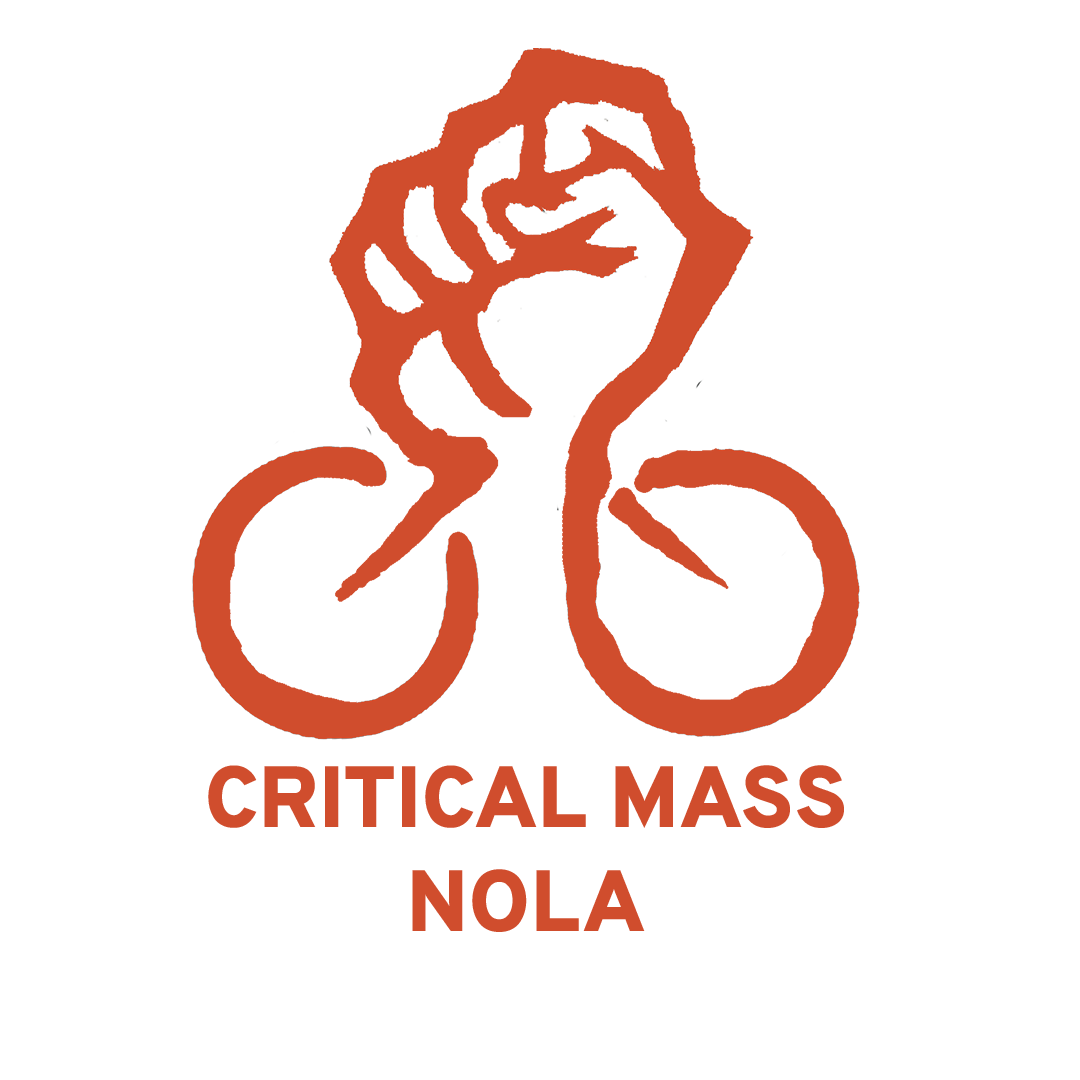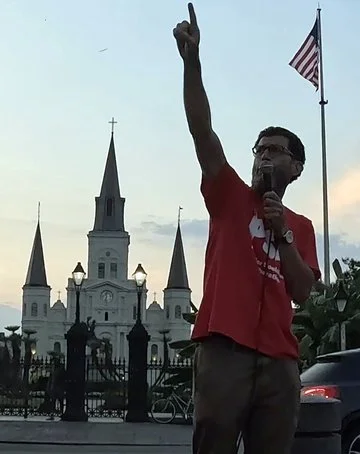Trump’s DOT Axes Bike and Trail Grants for Being “Hostile to Cars”
Car Culture, Capitalism, and the Assault on Safer Streets
Picture taken by Micael Milam, the bicyclist killed in the bike lane on St. Claude Ave. this year.
The U.S. Department of Transportation, under President Donald Trump and Transportation Secretary Sean Duffy, has canceled millions of dollars in federal grants this month for projects aimed at making streets safer for pedestrians and cyclists. From Boston to San Diego to small towns in Alabama, local governments were informed that planned bike lanes, pedestrian trails, and road diets were being rescinded because they were “hostile to motor vehicles.”
In San Diego County, a $1.2 million grant for a road project that included bike lanes was pulled because it would “reduce lane capacity.” In Fairfield, Alabama, a trail conversion was canceled as “counter to DOT’s priority of preserving or increasing roadway capacity for motor vehicles.” Boston officials were told that redesigning Mattapan Square to improve walking, biking, and transit was unacceptable because it altered the city’s “auto-centric configuration.” Even modest safety upgrades at intersections were rescinded on the grounds they might “impede vehicle capacity and speed.”
Trump has made no secret of his quest to dismantle policies associated with Joe Biden, including rescinding support for clean energy and electric vehicle infrastructure. But the DOT’s September 9 wave of cancellations demonstrates a deeper agenda to entrench car dominance and ensure that cities remain designed around single-occupancy vehicles, even as traffic deaths rise and demand for alternatives grows.
Local officials were alarmed not only by the cancellations, but by the language used to justify them. Terry Brunner, Albuquerque’s chief of staff, said his city had been bracing for the loss of an $11.5 million grant for a rail trail project. “We knew what might be coming, but we weren’t sure,” Brunner admitted, noting that the project had been in limbo since Trump returned to power.
At first glance, the story seems like a simple clash between Republicans and Democrats over infrastructure priorities. But the problem runs deeper. While Trump and his DOT appointees openly defend the automobile and fossil fuel industries, Democrats have failed to mount a real challenge to car dominance. Despite their climate rhetoric, Democratic policymakers continue to funnel the majority of transportation dollars into highways and sprawl. The automobile, oil, and real estate industries profit immensely from this arrangement — and both parties, committed to capitalism, serve those interests.
Even when Democrats support bike lanes or transit, these projects remain token gestures within a system still overwhelmingly tilted toward cars. Capitalism cannot take the bold initiatives required to break fossil fuel dependency because every step is constrained by the profit motive. The result is a bipartisan consensus—streets built for cars, not people.
Picture taken by Micael Milam, the bicyclist killed in the bike lane on St. Claude Ave. this year.
But the stakes are far greater than bike lanes. We need to leave fossil fuels in the ground and immediately expand renewable energy infrastructure. We need to produce only what is needed, not what turns the biggest profit. That means providing job training in fields that build a sustainable world and reorganizing society around human need and ecological balance.
Transit advocates often point to the growing demand for walking, biking, and public transportation infrastructure in cities and towns across the political spectrum. Florida, a Republican-controlled state, is expanding its network of mixed-use trails. In Illinois, McLean County has worked for decades on a pedestrian and bike trail along historic Route 66, only to see $675,000 in federal funding yanked. These local efforts highlight the desire of communities to move beyond car dependency. But so long as capitalism organizes urban planning around private profit, local initiatives will remain vulnerable to the whims of federal bureaucrats and the political theater in Washington.
Nonprofits and advocacy organizations can raise awareness, but they cannot overcome the structural barriers that capitalism imposes. The fight for safer streets, clean transit, and livable cities requires more than policy tweaks — it requires an economy and urban design planned by the working class itself. We have to open our minds to the possibility of a different way of living in alignment with nature — to building revolutionary socialist organizations that can make it real.
Only a planned economy can provide this. By removing transportation from the grip of profiteers, society could build cities designed around human need and ecological sustainability. Streets could be reclaimed for people, not automobiles. Bike networks, pedestrian paths, and public transit could become the backbone of daily life, reducing fossil fuel dependency and saving lives. But that’s only the beginning. Climate scientist Tina Landis, in her groundbreaking book Climate Solutions Beyond Capitalism, writes that, “To build a livable future, we must set up renewable energy infrastructure, restore ecosystems, revolutionize agriculture to be local and regenerative, and rebuild cities and towns as walkable, bikeable eco-cities.”
The battle over canceled grants is not just about one administration’s priorities. It is a window into a system that sacrifices safety, sustainability, and community well-being to protect the profits of the automobile and oil industries. To end car dominance, to save our planet, and to create a society that serves people instead of corporations — we need more than new grants. We need an economy planned for the people and the planet.
Another World is Possible!
-Eric Gabourel



